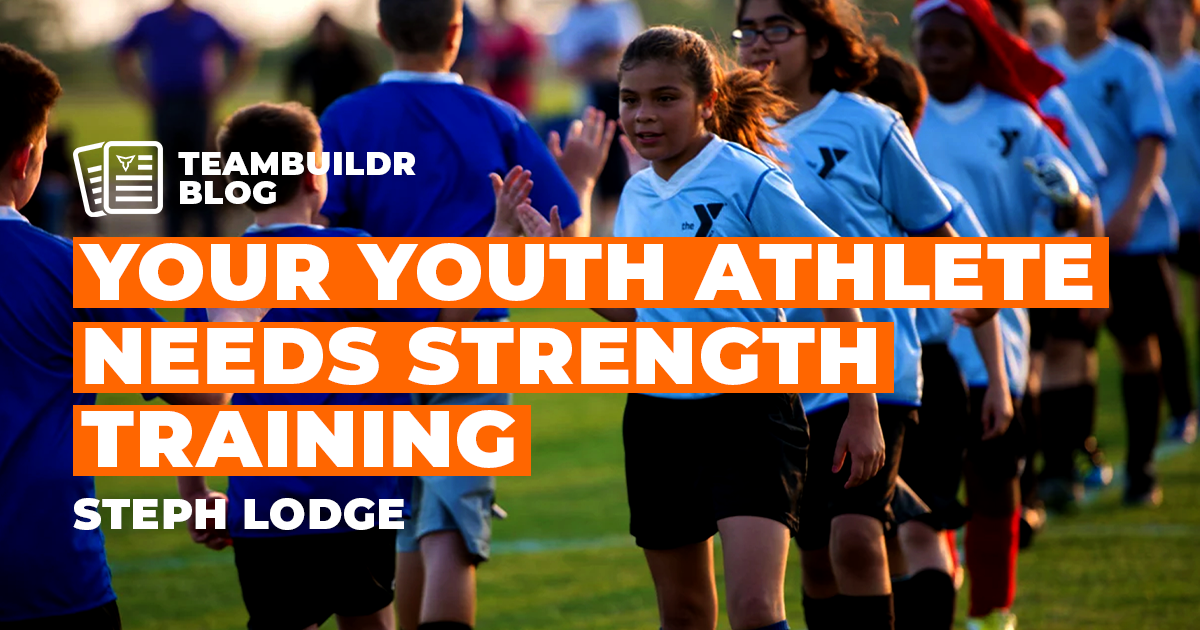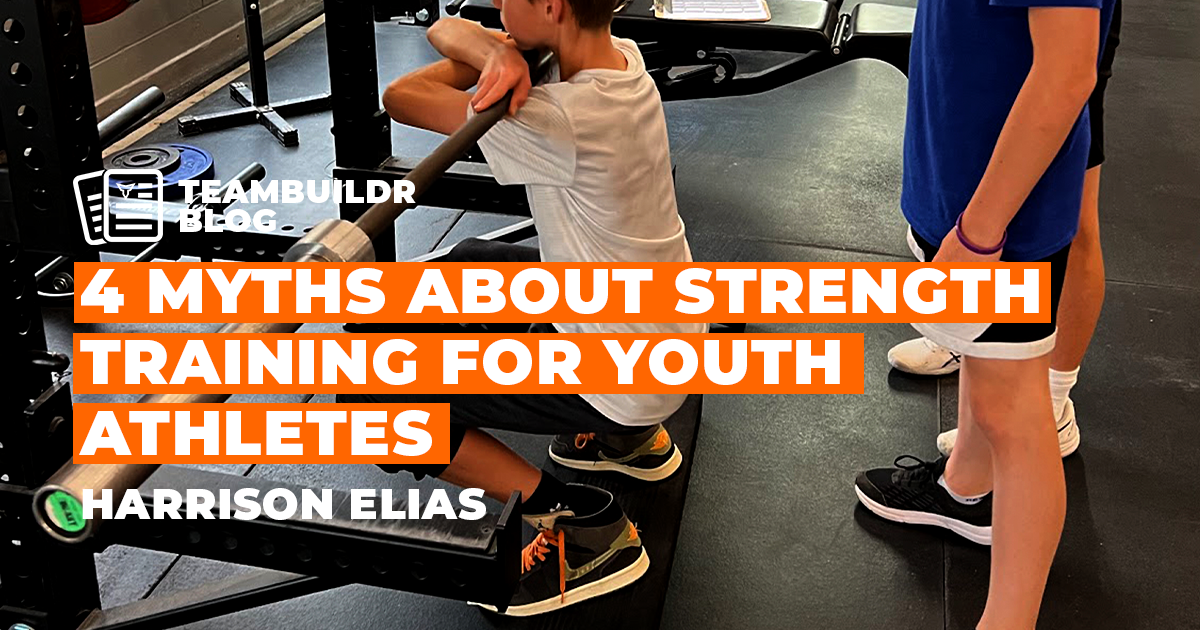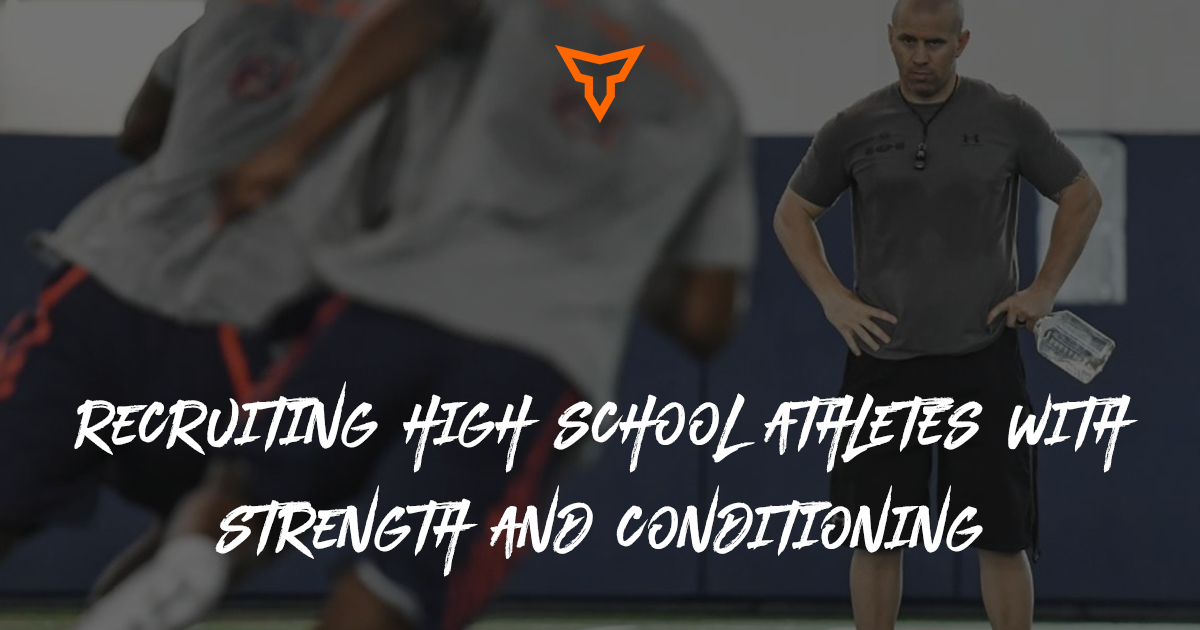Preparing Your High School Athlete for College Athletics
Early in my career, I was a sport and strength and conditioning coach for several high school teams. Fortunately for my athletes, I wasn’t far along enough in my career as a strength coach to try any advanced training.
Whether they were going on to play in college or not, I stuck with the basics because I knew those the best. In the end, I may have done those athletes a favor. One of the worst things a high school strength coach can do is to try to make their athletes into college phenome’s before they have even received their diplomas. I get that there is a competitive desire to be the strength coach that cranks out athletic monsters every college recruiter drools over. But, as a collegiate strength coach, I can tell you if this becomes the focus of a strength program, the coach then misses out on what will really make their athletes successful in college.
Lay a Solid Foundation for Movement
By all means, high school coaches should teach athletes technique: teach them how to lift, how to run, and how to change direction quickly. But they should also take the time to screen them for quality movement and shore up any deficiencies or imbalances. College strength coaches love getting freshman who are great squatters or can perform a clean with excellent technique, but it doesn’t help much when they have frozen hips, underactive glutes, or shoulder impingements. The last thing college coaches want to do is spend extra time (the coach’s time training and the athlete’s time developing) correcting overlooked or unmanaged problems. High school coaches should train athletes to be masters of the basics. Doing so will make it easier for them to transition into any college strength and conditioning program and play college sports.
Ready to give our programming software a shot? Take a 14-day trial, no strings attached >>
Develop a Collegiate Mentality
I would argue that even more important than preparing high school athletes physically is preparing them mentally. Teaching high school athletes about hard work and sacrifice can go a long way once they enter the busy world of college athletics. Most athletes who have achieved any kind of accolades while playing high school sports are familiar with the work involved and the sacrifices they may have to make in order to be successful. Surprisingly though, some athletes think that once they enter college, the hard part is over. It’s best for all parties involved if incoming athletes know that expectations will increase on all levels: academically, physically, and amount of time invested. Without clear knowledge of what will be expected of them, athletes can be walking into a storm which will make the freshman year a survival activity as opposed to a growing opportunity.
Teach Them to Be Coachable
Perhaps the most important thing a high school coach can do to prepare athletes for life in college athletics - and after - is to teach them how to be coachable. Coachable athletes become successful people. If you can teach your athletes to listen to criticism and act on it in a constructive manner you’ll be doing a favor for every coach, teacher, teammate, coworker and supervisor they will ever have. The weight room is the perfect environment for athletes to learn this lesson. Every day your athletes receive scores of feedback on technique, effort, and leadership. Developing coachability means explaining to young athletes how listening objectively to criticism can help them to improve outside of the weight room as well.
In the end, how a high school coach prepares an athlete for a career in college sports should not be much different from how you prepare all athletes: Make sure they have the best foundation of mental and physical skills that will continue to benefit them in all of their future endeavors and throughout their lives.
[button link="https://teambuildr.com/signup?utm_medium=post&utm_campaign=content&utm_content=squat-variations" size="xl" bg_color="#ff6500" border="#ff6500" window="yes"]Start Your 14-Day Free Trial[/button]
Subscribe to our blog
Subscribe to receive the latest blog posts to your inbox every week.
Related posts

Your Youth Athlete Needs Strength Training

4 Myths About Strength Training for Youth Athletes
